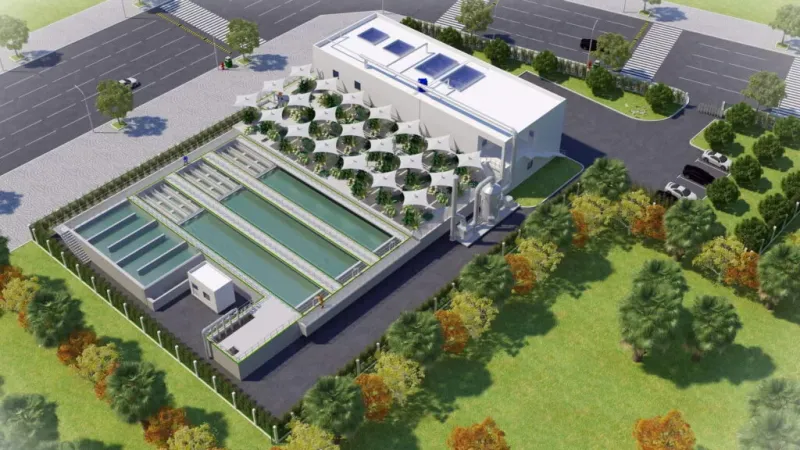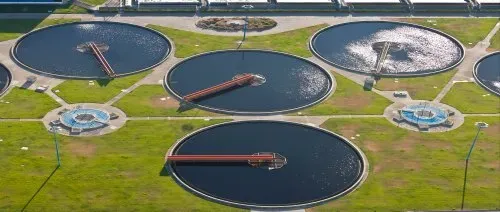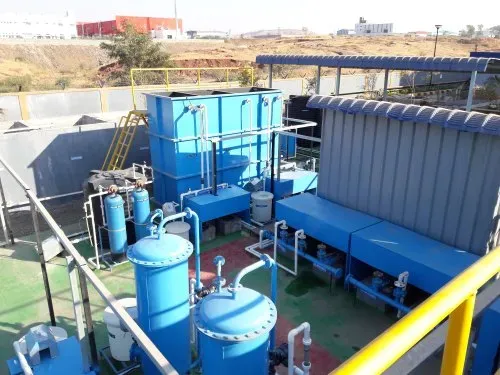Moving towards Green Hospitality: Advancing Wastewater Management in Hotels
Introduction to Green Hospitality
In the dynamic interplay between luxury and environmental responsibility within the hospitality industry, hotels are undergoing a profound paradigm shift in their approach to wastewater management. With water scarcity becoming an increasingly pressing global concern, hotels are recognizing the pivotal role they play in conserving this precious resource. This blog sets out to delve into the intricate realm of hotel wastewater treatment and reuse, shedding light on the challenges faced, the innovative solutions emerging, and the tangible benefits realized in the pursuit of sustainability.

Understanding the Challenge
At the heart of every hotel lies a world of opulent amenities and bustling activity, creating a haven for guests seeking respite and relaxation. However, this environment also gives rise to a significant volume of wastewater, generated from various sources such as guest rooms, kitchens, spas, and recreational facilities. The disposal of untreated wastewater presents a formidable challenge, with the potential to wreak havoc on the environment and public health. Contaminating water bodies, depleting freshwater reserves, and posing risks to ecosystems, the unchecked discharge of wastewater underscores the urgent need for hotels to adopt comprehensive and sustainable wastewater management practices.
To effectively tackle this challenge, hotels must navigate various complexities, including the diverse nature of wastewater, regulatory requirements, and the need to balance environmental responsibility with operational efficiency. Moreover, the specific geographical locations and infrastructure limitations of each hotel further add to the complexity, requiring customized solutions that are both effective and financially feasible.
However, within these challenges lie opportunities for innovation and progress. By embracing advanced wastewater treatment technologies, implementing decentralized systems, and exploring options for water reuse, hotels can not only reduce their environmental impact but also gain substantial economic advantages. These benefits range from lower utility expenses to improved brand image and guest satisfaction, illustrating the numerous rewards of sustainable wastewater management.
In the following sections of this blog, we will extensively explore the development of treatment technologies, the adoption of decentralization, the exploration of reuse potential, and the realization of economic and environmental benefits within the context of managing hotel wastewater. Through the examination of real-world case studies and insights from experts in the field, our aim is to provide a thorough understanding of this pivotal aspect of sustainability in the hospitality industry.

The Progression of Treatment Technologies
Traditionally, hotels relied on conventional methods such as sedimentation, filtration, and chlorination for treating wastewater. Although somewhat effective, these approaches often struggled to adequately address the complex composition of hotel wastewater, which includes organic matter, suspended solids, and various contaminants. In response to these challenges, there has been a significant evolution in treatment technologies within the industry.
Innovative treatment methods such as membrane bioreactors (MBRs), ozone therapy, and electrocoagulation have emerged as transformative solutions in managing hotel wastewater. Unlike conventional techniques, these modern approaches offer heightened efficiency, elevated water quality, and increased adaptability to the diverse characteristics of hotel wastewater. Membrane bioreactors employ membranes to segregate solids from liquids, while ozone therapy utilizes ozone gas for water disinfection and purification. Electrocoagulation utilizes electric currents to eliminate contaminants through coagulation and flocculation processes.
These technological advancements signify a significant shift in how hotels approach wastewater treatment. They not only bolster environmental sustainability but also improve public health outcomes by ensuring comprehensive treatment of wastewater before disposal or reuse. As hotels continue to prioritise sustainability, the adoption of these innovative treatment technologies is projected to become more widespread throughout the industry.

Embracing Decentralization
Centralized wastewater treatment plants, typically effective in urban settings, may not always be suitable for individual hotels and resorts. Recognizing this limitation, hotels are increasingly adopting decentralized treatment systems. These systems offer greater flexibility and scalability, catering to the specific needs of each establishment.
Modular solutions, such as pre-packaged plants and portable treatment units, are becoming increasingly popular due to their simplicity in on-site installation. By reducing infrastructure demands and operational interruptions, hotels can seamlessly incorporate decentralized treatment systems into their existing setup. Additionally, these systems empower hotels to manage their wastewater autonomously, ensuring adherence to regulatory requirements while diminishing dependence on external utilities.
Decentralized treatment systems signify a transition towards more sustainable and self-reliant wastewater management practices within the hospitality sector. As hotels endeavor to diminish their environmental footprint and optimize operational effectiveness, the adoption of decentralized treatment systems is anticipated to grow, fostering positive transformations throughout the industry.
Identifying and Equipping the Potential of Reuse
Water reuse presents a compelling opportunity for hotels to optimize their water resources and reduce their environmental footprint. Treated wastewater, once considered a liability, can now be transformed into a valuable asset through innovative reuse applications.
From landscape irrigation to toilet flushing, HVAC cooling to decorative water features, hotels can repurpose reclaimed water for a wide range of non-potable purposes. By incorporating water-efficient fixtures and implementing smart water management practices, hotels can further enhance their sustainability credentials and appeal to eco-conscious guests.
The potential benefits of water reuse extend beyond environmental sustainability to include cost savings and enhanced brand reputation. By embracing water reuse initiatives, hotels can demonstrate their commitment to sustainability while reducing water consumption and operational expenses. As sustainability continues to be a driving force in the hospitality industry, the importance of water reuse as a viable and effective solution cannot be overstated.
Achieving Economic and Environmental Advantages
Financial Benefits:
Integrating sustainable wastewater management practices within hotel operations presents a pathway to significant financial gains. Through measures such as optimizing water usage, reducing utility costs, and implementing efficient wastewater disposal strategies, hotels can capitalize on tangible savings. Research underscores that initiatives promoting the reuse of water not only drive down operational expenses but also bolster the financial resilience of hotels, enhancing their profitability in the long run.
Building a Positive Brand Image:
Embracing sustainability initiatives not only signifies a commitment to environmental stewardship but also positions hotels as industry leaders in sustainability. By showcasing a dedication to eco-friendly practices in wastewater management, hotels can resonate with a burgeoning cohort of environmentally conscious consumers. This proactive stance not only solidifies guest loyalty but also amplifies brand differentiation within the competitive hospitality landscape, reinforcing a positive image that resonates with guests and stakeholders alike.
Appealing to Environmentally Conscious Guests:
The growing preference for eco-friendly accommodations underscores the importance for hotels to cater to the needs of environmentally conscious travelers. By adopting sustainable wastewater management practices and communicating these efforts effectively, hotels can attract discerning guests who prioritize sustainability. Such initiatives not only translate into increased occupancy rates but also foster a community of like-minded individuals who appreciate and support environmentally responsible businesses.
Contributing to Environmental Preservation:
Beyond the immediate financial gains, sustainable wastewater management in hotels carries profound implications for environmental conservation. By adopting measures to curtail water consumption and minimize untreated wastewater discharge, hotels play a vital role in safeguarding local ecosystems and preserving precious freshwater resources. This proactive approach to environmental stewardship aligns with broader conservation agendas, contributing to the sustainable development of tourism destinations and mitigating the ecological footprint of the hospitality sector.
Conclusion
The adoption of hotel wastewater treatment and reuse marks a significant transformation within the hospitality sector, signaling a shift towards sustainability and resilience. Through the utilization of advanced technologies, the embrace of decentralized solutions, and the exploration of water reuse possibilities, hotels have the opportunity to not only reduce their environmental footprint but also generate economic value and elevate guest experiences. As we progress towards a greener future, it is imperative that we remain committed to innovation, collaboration, and driving positive change. Let us continue to inspire one another, working together to ensure that every drop of water is valued and utilized responsibly as we strive towards a more sustainable tomorrow.